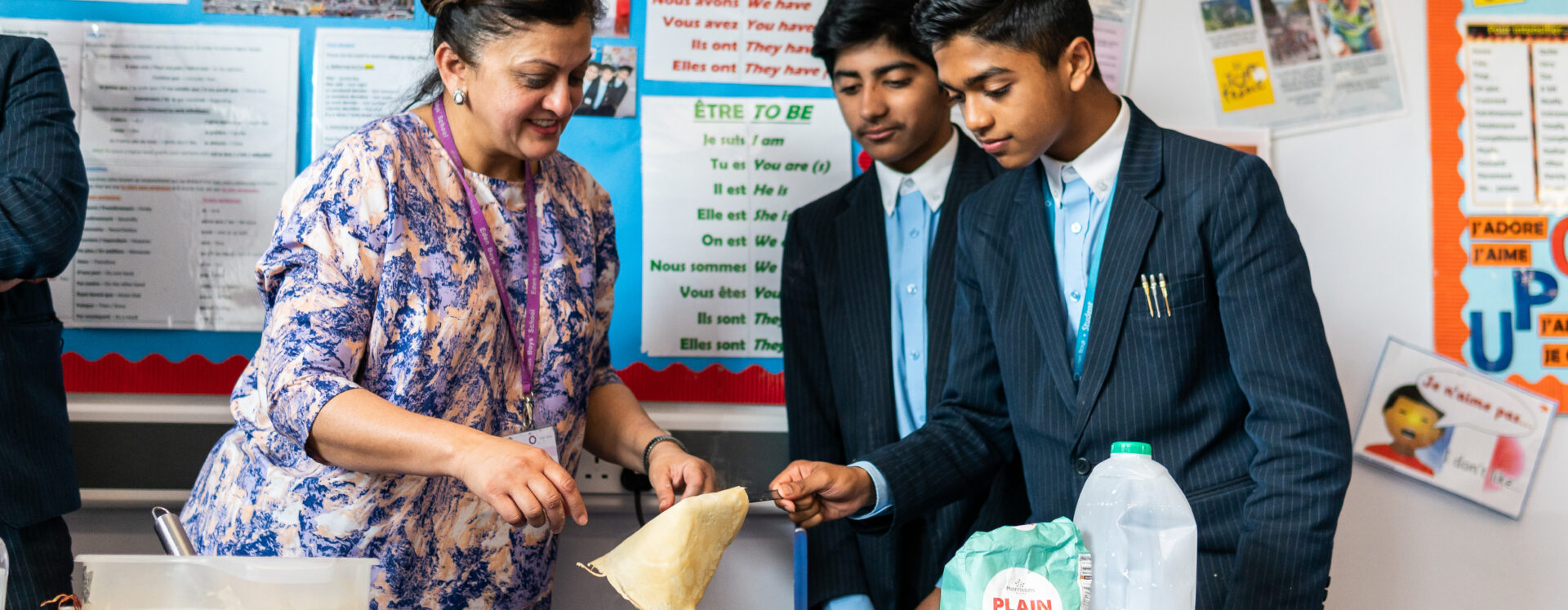Maths
Why study Maths?
Mathematics is the language of the universe and so helps pupils to understand the amazing and complex world around them. Beyond the study of numbers, shapes, and patterns, it also provides important tools for work in fields such as engineering, physics, architecture, medicine, and business. It nurtures the development of a logical and methodical mindset and helps instil focus and the ability to solve all manner of problems. Attainment in the subject is the key to opening new doors to further study and employment. A Mathematics GCSE is also an essential qualification to pursue further studies in many fields.
How will I study Maths?
In this course, pupils will study topics such as number work, algebra, shapes, ratio, and data-handling in depth as well as investigate mathematically advanced concepts such as trigonometry, circle theorems, vectors, and proof. Pupils will be taught declarative knowledge components for each strand, practice the classical mathematical procedures, and have opportunities to extend this to conditional knowledge and lots of ‘what if’ and varying situations. Pupils will have the opportunity to continually develop communication and reasoning skills and learn problem solving strategies.
What will I study at Key Stage 3?
Our Key Stage 3 curriculum begins in Year 7 by focusing on finding and filling any gaps from Key Stage 2 and establishing a strong grasp of the number line, arithmetic, decimals, fractions, and properties of numbers. Introductions to Key Stage 3 algebra and shape are gradual, with the aim of building confidence gradually and sequentially.
We continue in Year 8 by building on the algebra and shape introduced in Year 7. Graphs, sequences, and probability are also explored at higher levels and connections between different branches start to be made. Students are given time to build on declarative knowledge and further develop procedural knowledge across the many areas of mathematics.
Our Key Stage 3 continues into Year 9 and focuses on developing strong procedural knowledge on the parts of the curriculum covered so far and establishing more conditional knowledge. Confidence and accuracy in calculation and manipulation are emphasised as well as articulating reasons and linking different methods and ideas. Advanced ideas around ratio and proportion, inequalities, trigonometry, and data handling are explored. Reinforcing and using mathematical concepts and notation help build a strong foundation for the higher-level maths to come.
What will I study at Key Stage 4?
Our Key Stage 4 focuses on investigating some of the most advanced parts of the curriculum. Higher level trigonometry, surds, quadratic equations, and data handling techniques are studied, and intentional time is given to explore concepts in detail. Students begin to articulate ideas mathematically and make links to previous learning clearly.
Toward the end of Key stage 4, there is an explicit focus on making and building connections between the different branches of mathematics to help solve high level problems. All topics covered are multi-layered and draw on a strong understanding of many areas of the curriculum. Students are required to communicate mathematically using established notation and ideas as they will in any further study of the subject. Students’ understanding and knowledge is deepened and there is also a clear focus on the use of the subject in the real world.
Assessment at Key Stage 4
Internal assessments take place every half-term.
Edexcel GCSE MATHS PAPER 1: 1MA1/1F or 1MA1/1H Non-Calculator
| Overview | Focus |
|---|---|
|
|
Edexcel GCSE MATHS PAPER 2: 1MA1/2F or 1MA1/2H Calculator
| Overview | Focus |
|---|---|
|
|
Edexcel GCSE MATHS PAPER 3: 1MA1/3F or 1MA1/3H Calculator
| Overview | Focus |
|---|---|
|
|
KS4 Exam Board Specification: EdExcel GCSE Mathematics (1MA1)
Enrichment
Pupils have lots of opportunities for enrichment in both mathematics and mathematic related skills. The department offers a Maths club where students can bring together knowledge and skills they have learnt in maths and complete a cross curricular project presented in a real-life scenario. They work as a team on the project and develop their leadership skills. Students have the opportunity to take part in chess club and the challenges set up by UK Mathematics Trust.
There is also lots of enrichment in lessons, such as lessons on symmetry of religious symbols and flags, rangoli patterns, geometric patterns, choosing the best financial deal, and also the maths associated with charitable giving in Islam.
Careers
A good GCSE grade in Mathematics will allow you to choose A Levels and a degree in a variety of fields including Mathematics, Statistics, and Physics. These include careers in accountancy, engineering, economics, teaching, and computing.
Most colleges will require at least a grade ‘5’ in GCSE Maths to be able to apply for A levels, and at least a grade ‘6’ or ‘7’ to be able to apply for A levels in Science and Mathematics.

